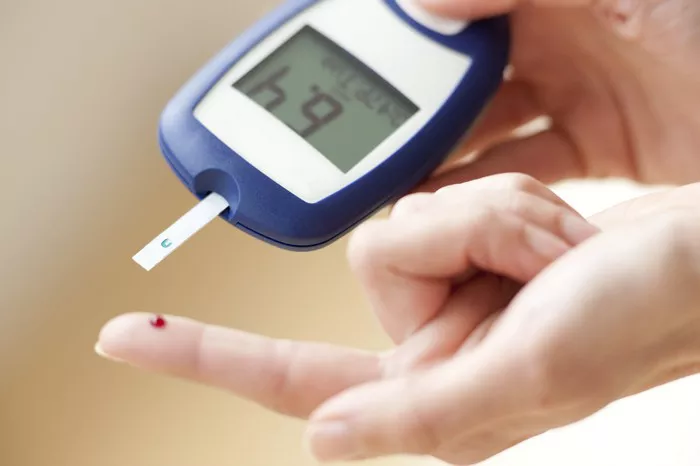Diabetes is a chronic metabolic disorder characterized by high blood sugar levels resulting from insufficient insulin production or ineffective use of insulin by the body. Insulin resistance plays a significant role in the development and progression of type 2 diabetes, the most common form of the disease.
Insulin resistance occurs when the body’s cells become less responsive to the action of insulin, a hormone produced by the pancreas that helps regulate blood sugar levels. As a result, the pancreas must produce more insulin to overcome this resistance, leading to elevated insulin levels in the blood.
Causes and Risk Factors
Several factors contribute to the development of insulin resistance, including obesity, sedentary lifestyle, genetics, and certain medical conditions. Excess body fat, particularly abdominal fat, increases the release of fatty acids and inflammatory substances, which interfere with insulin signaling and promote insulin resistance.
Genetic factors also play a role in insulin resistance, with certain gene variants predisposing individuals to the condition. Additionally, conditions such as polycystic ovary syndrome (PCOS), hypertension, and dyslipidemia are associated with insulin resistance.
Symptoms of Insulin Resistance
Recognizing the signs and symptoms of insulin resistance is crucial for early detection and intervention. Common symptoms include increased hunger, especially after meals, fatigue, difficulty losing weight, and a tendency to gain weight, particularly around the abdomen. Other signs may include frequent urination, increased thirst, and blurred vision.
Diagnosis and Monitoring
Diagnosing insulin resistance typically involves blood tests to measure fasting insulin levels and glucose tolerance tests to assess how well the body processes sugar. These tests can help healthcare providers identify individuals at risk of developing type 2 diabetes or monitor those already diagnosed with insulin resistance.
Regular monitoring of blood sugar levels, lipid profiles, and other metabolic markers is essential for individuals with insulin resistance to track their progress and adjust treatment plans accordingly.
Lifestyle Modifications
Making lifestyle changes is fundamental to managing insulin resistance and preventing its progression to type 2 diabetes. Adopting a balanced diet rich in whole foods, fiber, and lean proteins while minimizing processed sugars and carbohydrates can help stabilize blood sugar levels and improve insulin sensitivity.
Incorporating regular physical activity and exercise into daily routines is also essential for managing insulin resistance. Both aerobic exercises, such as walking, swimming, or cycling, and resistance training, such as weightlifting or bodyweight exercises, can help improve insulin sensitivity and promote overall health.
Managing stress through relaxation techniques, mindfulness practices, and adequate sleep can further support insulin sensitivity and metabolic health. Additionally, avoiding smoking and excessive alcohol consumption is crucial, as both can worsen insulin resistance and increase the risk of developing type 2 diabetes.
Medical Interventions
In addition to lifestyle modifications, healthcare professionals may prescribe medications and treatments to manage insulin resistance. Metformin, a commonly prescribed medication, helps improve insulin sensitivity and lower blood sugar levels in individuals with insulin resistance or prediabetes.
Insulin sensitizers, such as thiazolidinediones, may also be prescribed to enhance insulin action in the body. Regular medical check-ups are essential for individuals with insulin resistance to monitor their progress, assess cardiovascular risk factors, and adjust treatment plans as needed.
Nutritional Strategies
Nutrition plays a crucial role in managing insulin resistance and optimizing metabolic health. Monitoring carbohydrate intake and choosing low-glycemic index foods can help prevent spikes in blood sugar levels and promote stable energy throughout the day.
Incorporating healthy fats, such as avocados, nuts, and olive oil, and lean proteins, such as poultry, fish, and tofu, into meals can help promote satiety and stabilize blood sugar levels. Considering intermittent fasting or meal timing strategies may also improve insulin sensitivity and metabolic flexibility.
Supplements and Herbs
While supplements and herbal remedies may offer potential benefits for improving insulin sensitivity, it’s essential to consult with a healthcare professional before adding them to one’s regimen. Chromium, cinnamon, and alpha-lipoic acid are among the supplements that have been studied for their potential effects on insulin resistance and blood sugar control.
However, more research is needed to confirm their efficacy and safety, and individual responses may vary. Healthcare providers can provide personalized recommendations based on a thorough assessment of each individual’s health status and needs.
Conclusion
In conclusion, insulin resistance is a significant risk factor for type 2 diabetes and cardiovascular disease, but it can be managed and even reversed through lifestyle modifications, medical interventions, and holistic approaches to health and wellness. By adopting a balanced diet, staying active, managing stress, and seeking medical guidance when needed, individuals can improve their insulin sensitivity and overall metabolic health.
Related Topics:
Why Does Type 2 Diabetes Cause Fatigue?
























